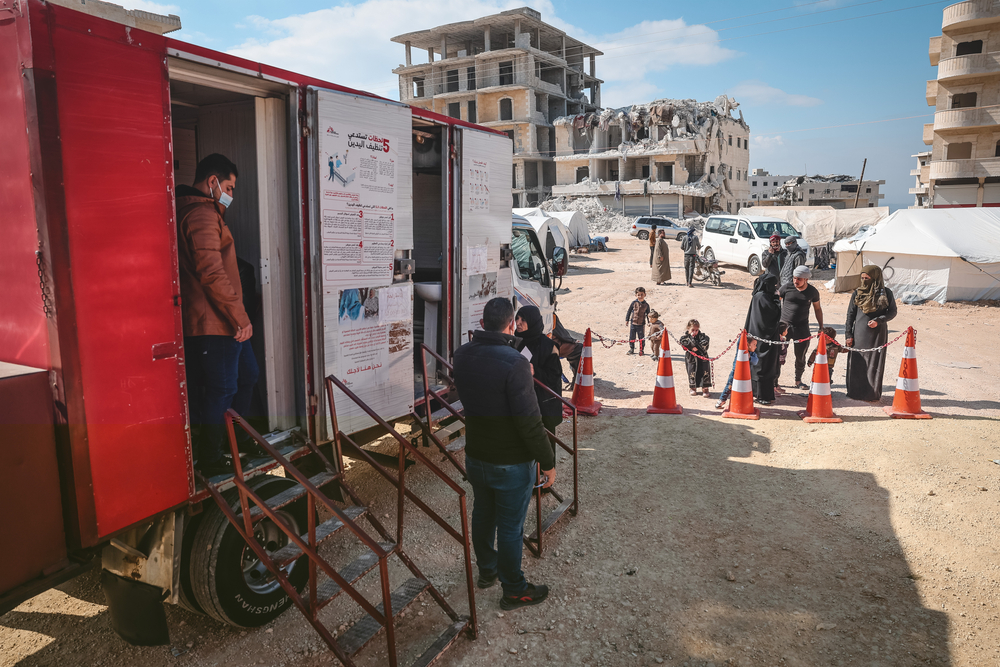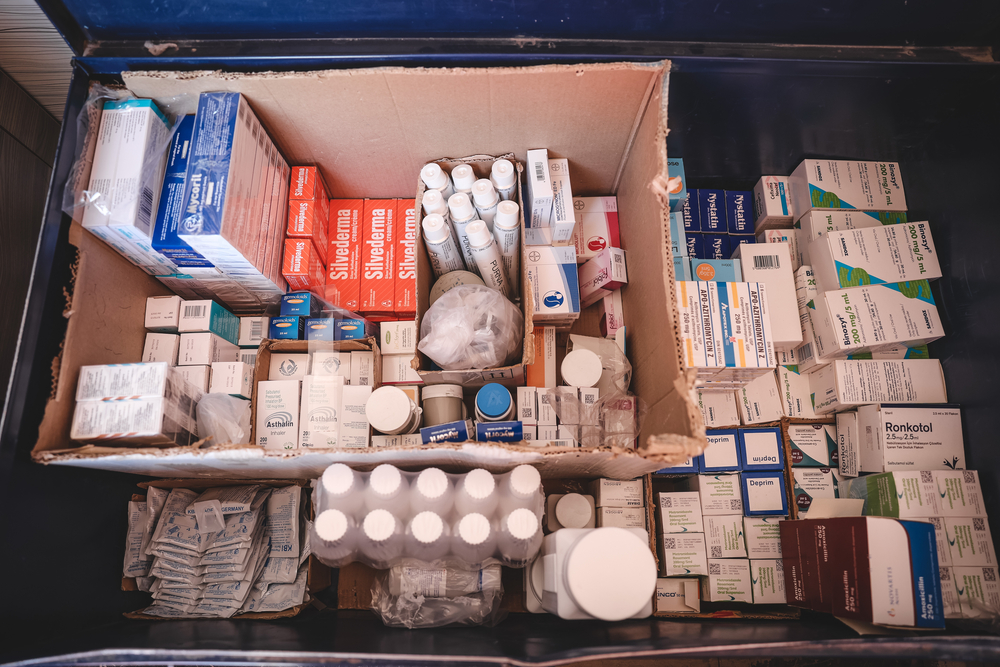MSF’s response to the earthquakes in Syria and Türkiye (Updated on 28/2)



MSF’s response to the earthquakes in Syria
Key data as of February 24, 2023:
• Relief items distributed: 30,232
• Mobile clinics consultations: 5,667
• Number of mental health consultations: 450
• Medical supplies donated: 27 tons
• Hospitals supported: 32
MSF has been present in northwest and northeast Syria for many years, making a swift response possible in the most affected areas, mainly in NWS, while NES was much less affected.
MSF teams are adapting their response in Syria to offer immediate relief and medical support. The pillars of the first few days of the response are supporting medical facilities to treat patients with material and HR support, facilitating transport of patients by supporting ambulances, and providing immediate relief items to people affected. Today, MSF has scaled its efforts deploying mobile clinics, distributing relief items, implementing water and sanitation and logistics activities, and offering psychological first aid.
Northwest Syria:
Supporting healthcare provision In Idlib and Aleppo governorates:
MSF supported 32 hospitals and health facilities, through donations of emergency kits, trauma kits medical supplies, and blankets. This includes facilities in Idlib, Azaz, Afrin, Mare’, Bab El Hawa, among other towns. We also sent medical staff, including surgeons, to support hospitals dealing with the influx of wounded.
In 4 health facilities (hospitals and clinics) in Idlib governorate, we treated injured patients, and we increased the capacity of the hospitals we’re working in by adding triage tents in the outside wards.
In addition, we deployed our ambulances and we’re supporting 90 ambulances to facilitate the transfer of patients in need of emergency assistance to the closest health facilities.
Mobile clinics:
We set up mobile clinics that were deployed in three reception centers, and eleven different camps in northwest Syria. The aim is to offer essential medical services to people affected by the earthquakes.
Mental health services:
Our teams launched a mental health hotline that is accessible to people, that is being communicated in the community through our health promoters and mental health specialists.
Offering relief support to affected families:
In Aleppo governorate, with our local partners, we distributed food and blankets to more than 500 families in the reception centers in Afrin.
Similarly, we distributed more than 800 kits, including hygiene items, kitchen kits, winter kits and blankets, to affected people in Jindires, one of the most affected cities, and families in reception centers in Azaz and Mare’ and surrounding villages.
A total of 19,594 blankets have been distributed in northwest Syria.
Offering immediate relief support to people affected by the earthquakes, particularly those without shelter in this cold weather, will remain a priority for our team. We will continue to assess the needs and adapt our response accordingly.
Donations/ MSF aid into northwest Syria:
On Sunday, February 26th 2023, MSF has brought in a convoy of 15 trucks including 1234 tents and winter kits to be distributed in the following days.
In addition, 24 tons of medical items have been imported in preparation for scaling up of activities.
MSF response in Türkiye
Key data as of February 25, 2023:
• More than 27,000 hygiene kits distributed
• More than 14,000 Relief items distributed
• More than 20,000 liters of water provided
• More than 180,000 meals served
• More than 9,000 food items distributed
• More than 34 tones of wood distributed
All MSF relief activities in Türkiye are carried out in collaboration with local partners as this is the model we have to use to help people affected.
Donation of essential relief items and medical supplies, WASH and food:
Adiyaman
MSF teams donated generators for energy, as well as more than 7,000 hygiene kits and relief items, such as blankets, sleeping bags, power banks, electrical stoves, diapers and winter undergarments. We have also donated more than 20,000 liters of water, a vehicle for transporting medicine and fuel for mobile clinics .
Elbistan
We have donated 250 hygiene kits and 400 thermal undergarments for first responders (healthcare workers and search and rescue teams) , as well as donated food in various villages in the outskirts of Elbistan.
Gaziantep
MSF donated 3,000 hygiene kits to the Turkish Red Crescent.
Islahiye district
MSF teams donated medical and non-medical items to Islahiye hospital and camp for displaced people, as well as hygiene kits to the Turkish Red Crescent.
We have donated more than 3,000 relief items, tents and 14,000 hygiene kits, as well as provided food and water for hospitals. MSF teams have also donated more than 8,000 food items including bread and food kits, as well as improved water and sanitation in the town and makeshift camps for displaced people, such as by installing more than 60 showers in camps and three water points in parks.
In addition, MSF supported a partner organisation in conducting mobile clinics focusing on mother and childcare (prenatal care, neonatal care, infant and childcare), as well as made a medical donation of scabies treatment.
Kilis
MSF supported the distribution of 180,000 hot meals to 6,000 people in four camps in Kilis, with IBC and Turkish Red Crescent (who is not a direct partner but coordinating through IBC).
Nurdağı District
MSF assessed WASH needs in rural areas of the Nurdağı district.
Kahramanmaras, Pazarcik and Kayseri
MSF teams donated relief items, such as sleeping bags, winter clothes for babies, personal care items, as well as hygiene kits. Our teams also provided fresh fruits and vegetables to organisations offering meals to displaced people.
Malatya
MSF donated 500 hygiene kits and 150 packs of adult diapers for people in informal camps and villages in hard-to-reach areas.
Mental health support
Hatay, Kahramanmaras, Pazarcik and Kayseri
MSF has provided mental health and psychosocial support for people affected by the earthquake, including volunteers and search and rescue teams engaged in the response through individual and group work, as well as by donating pedagogical material for psycho-social workshops.





Leave a Comment